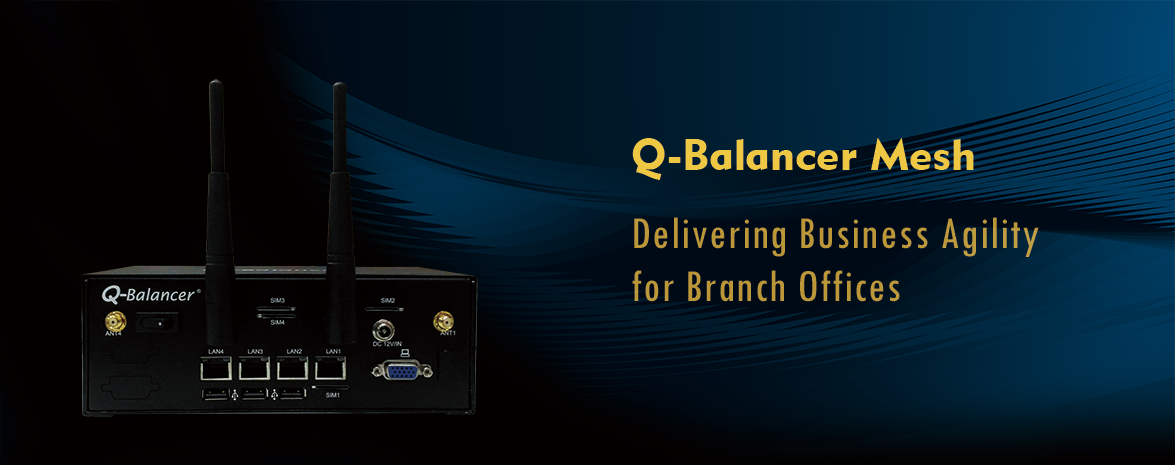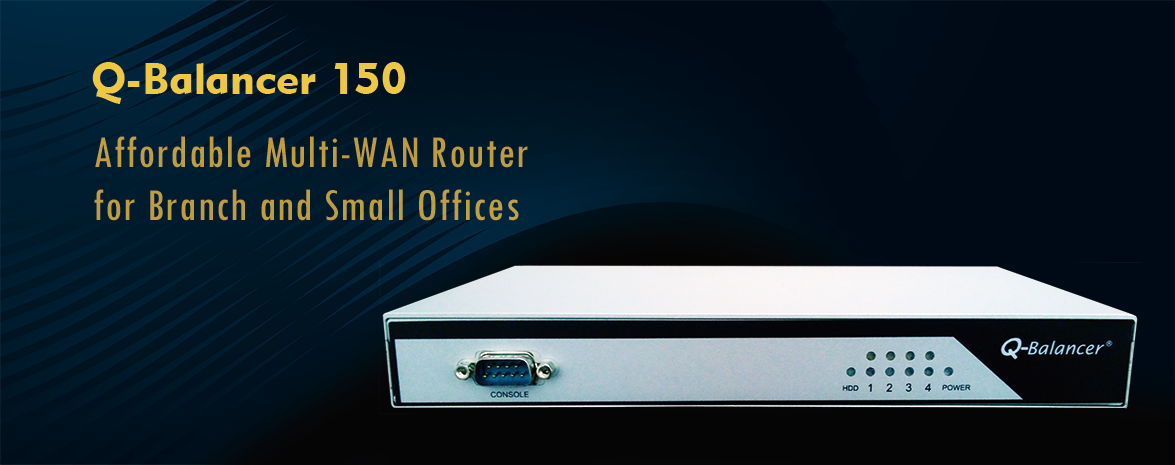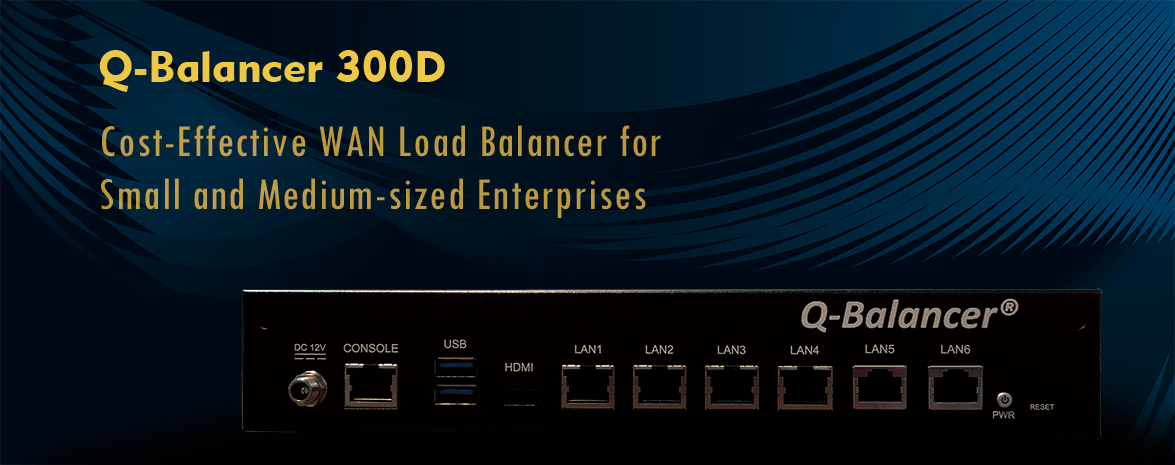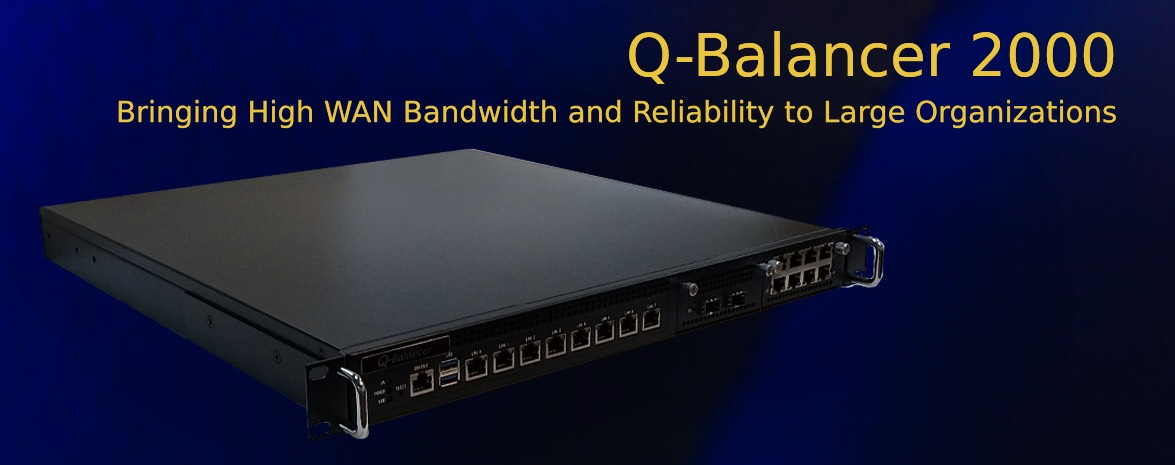Allocating Enough Bandwidth to Business-Critical Applications
Even though bandwidth is plentiful and cheaper today, businesses today may still need to enforce QoS rules to make doubly sure that VoIP, video, and other critical applications work properly without being affected by the possible bandwidth issue. When the response of mission-critical applications becomes slow because of limited bandwidth resource, businesses would have to invest more in bandwidth upgrade. However, more bandwidth means paying more to service providers monthly.
> Multi-Path QoS
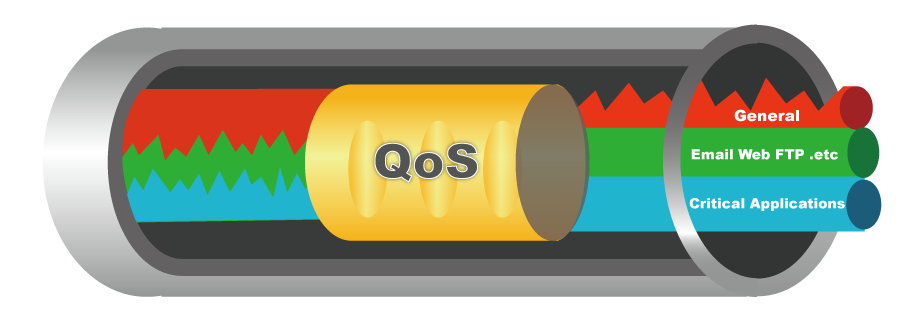
Quality of Service (QoS)
Q-Balancer QoS gives enterprises granular control over the bandwidth utilization by providing the mechanisms of policy-based QoS and service priority. The issues of network performance can be sorted or mitigated by allocating enough bandwidth to business-critical applications. With its policy-based QoS, IT managers can prioritize network traffic based on link load balancing rules. Service priority enables critical applications to get enough bandwidth required to cross the network without being unhindered by business-unrelated or non-critical traffic. Policy-based QoS provides network control based on IP hosts, service ports, and applications, while service priority enables enterprises to throttle traffic flows, and so non-critical applications will not overuse the bandwidth allocated.
Q-Balancer QoS mitigates abuse of bandwidth and prevents enterprises from mindless bandwidth upgrades or over-provisioning, and thus the possible waste on bandwidth cost is reduced. Multi-WAN load balancing allows enterprises to increase bandwidth by adding internet connections, while Multi-Path QoS helps improve bandwidth utilization and increase productivity.
Top Benefits
> Granular traffic control
> Business-critical applications are guaranteed for bandwidth allocation.
> Latency-sensitive applications have priority to utilize bandwidth.
> Cost saving as unnecessary bandwidth upgrade can be prevented.



